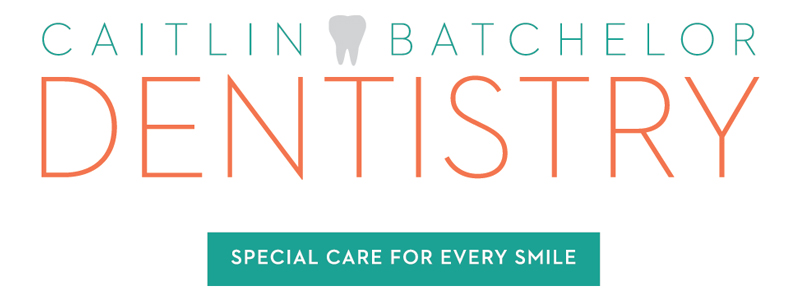What Is Pregnancy Gingivitis & Treatment For It?
If you’re pregnant, congratulations! It’s an exciting time. Your hormones are surging. Your body is getting ready to support new life. You know this already.
But maybe you don’t know that pregnancy can also pose the risk of acute oral health problems. An influx of hormones can put you at risk for tender, bleeding gums -- that’s pregnancy gingivitis, and about half of pregnant women experience it.
And that morning sickness (or later, that ferocious appetite) can increase your risk of developing cavities during pregnancy. Not what anyone wants to deal with during this exciting time.
In this post, I’ll explain how and why pregnancy-related dental problems happen. Keep reading to learn the symptoms of pregnancy gingivitis, determine if you’re at risk, and what to do.
Pregnancy Gingivitis Symptoms
Pregnancy gingivitis typically strikes during the second month of pregnancy. It’s often the worst during your eighth month. Symptoms include:
Red gums instead of healthy pink ones.
Tender or swollen gums.
Gums that bleed easily when you brush or floss.
If you don’t treat pregnancy gingivitis - a reversible problem - it can advance to become periodontitis, harming not only your gums but also the bone supporting your teeth - that’s irreversible damage. That’s what we want to avoid.
You’ll want to visit your dentist if you show signs of pregnancy gingivitis for evaluation and intervention. And if you have these symptoms, call your dentist ASAP:
A toothache.
A loose tooth.
A growth in your mouth (even if it’s not painful).
Other signs of gum disease, like bad breath or receding gums.
The Science Behind Pregnancy Gingivitis
Our mouths are an intricate ecosystem. Our immune system interacts with the bacteria in our mouths, establishing a delicate balance. When you’re pregnant, your body creates more progesterone and other hormones that can throw off this balance.
Progesterone is vital for pregnancy. It keeps the uterine lining healthy, balances blood sugar, helps you sleep, and lowers anxiety. But it can also promote bacteria growth in your mouth. Scientists believe that’s why pregnancy gingivitis happens.
Plus, progesterone can change or suppress your normal immune response. That means your body might overreact to bacterial plaque in your mouth. Before you know it, you have pregnancy gingivitis.
Pregnancy Gingivitis Treatment & Prevention
Your dentist and dental hygienist can help with pregnancy gingivitis by removing plaque and bacteria, which in turn can control gum inflammation. This may mean more frequent dental hygiene visits or new tools for you to use at home to help control disease-causing bacteria. And whether you have pregnancy gingivitis or want to prevent it, perfecting your brushing and flossing routine is your best defense against inflammation-causing bacteria.
Being Pregnant Can Cause Cavities?!?
Not exactly, but pregnancy symptoms can create dental risk factors. Frequent vomiting, for example, can expose your teeth to stomach acid. That can erode your enamel or promote the formation of cavities. You may want to consider taking antacids or rinsing with a baking soda solution (1 teaspoon baking soda mixed in 1 cup of water) to neutralize those acids and protect your teeth.
If you snack often to stabilize your blood sugar or satisfy cravings, that can speed cavity formation too. Eating lots of fermentable carbs like crackers, pretzels, or sugar can contribute to decay, so consider brushing more frequently if you are snacking more, or at least wash those snacks down with plenty of water.
As you can see, going to the dentist while you’re pregnant -- even if nothing is wrong -- is extremely important to identify problems like pregnancy gingivitis or cavities early.
Is Dental Treatment Safe During Pregnancy?
So what happens if you do have a dental problem during pregnancy?
Over the past several years, the thinking within the medical and dental communities have changed regarding the safety of dental treatment during pregnancy. The American College of Obstetricians and Gynecologists have issued multiple publications, including a Committee Opinion, stating that dental treatment (including dental X-rays, routine preventive care, dental restorations, emergency treatment like dental extractions or root canals, and the administration of local anesthetic) is safe during all trimesters of pregnancy, for uncomplicated pregnancies.
Furthermore, “Since 2006, a few state organizations and dental associations have issued practice guidelines declaring that dental care is safe and effective at any stage of pregnancy, including diagnostic X-rays, cavity restorations and root canals,” writes The New York Times. If you have other health problems or a more complicated pregnancy situation, you should contact your OB-GYN before undergoing dental treatment to coordinate care with your dentist. But the good news is, for most moms-to-be, routine care is safe and encouraged for a healthy mom, healthy baby, and healthy pregnancy!
Finally, here are a few takeaways on dental health and pregnancy:
Do tell your dentist if you’re pregnant or trying to conceive.
Do keep flossing daily to keep gums as healthy as possible.
Don’t stop going to the dentist while you’re pregnant.
Do keep brushing diligently (with a soft toothbrush!) -- after every meal is best, or at least twice a day.
Don’t be afraid of dental x-rays, fillings, root canals, antibiotics, or local anesthesia. Many studies have shown they’re all safe during pregnancy!
Do eat foods high in calcium and vitamin D to keep your teeth healthy.
Don’t take excessive amounts of Tylenol if you have tooth pain -- it can harm your baby. Call your dentist instead.
I hope this helped you get a better idea of how to take care of your teeth during pregnancy! If you still have questions, ask me in the comments or call Batchelor Dentistry at 540-432-9992.
Pregnant and concerned about your dental health? Make an appointment today!



